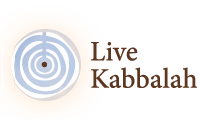Balak, the son of Tsippor, King of Moab whose kingdom borders that of the Amorites, has seen the defeat of the Amorites by the people of Israel. Feeling threatened, he tries to find a way to defeat Israel and seeks the advice of the elders of Midian, who, according to some commentaries, tell him that the power of Moses is in his voice, in the magic that he performs, which is how he overcame Pharaoh, and by these means he will triumph. Balak then sends messengers to Balaam, a sorcerer as great as Moses (in the world of impurity), in an attempt to harness his talents on his behalf. The story of Balak does not do injustice to any fantasy production about the wars between good and evil sorcerers. In this story, nonetheless, neither Moses nor the people of Israel are consciously involved.
With the arrival of Balak’s messengers to Balaam, Balaam replies that following his counsel with G-d he cannot comply with their wishes. Balak persists and sends additional messengers, promising Balaam great honor and wealth. Again Balaam takes counsel with G-d, and then sets out. We do the same. Often in life we encounter a problem, the solution to which we have already been clearly given to understand. Deep within we know that the direction we have taken is wrong, but money and glory beckon, and we slowly find a “logical” way to whitewash what is clearly, undoubtedly, impure.
The Parasha begins with the words “And Balak, the son of Tsippor, saw all that Israel has done to the Amorites.” The Zohar contends with the words “And Balak saw” – “What did he see?”, to teach us that it is not that which the eyes perceive, but rather what is perceived through wise observation. The Zohar uses the term “windows of wisdom”, i.e., the question being through which window do we see our reality? As truly our eyes are quite limited as to what they can see. This teaches us that the moment we connect to our true self, to the place of “and you shall do what is right and good”, the pristine place of love, compassion, tolerance, then do knowledge and truth reveal themselves in clarity, and the window is pure and transparent. However, if we choose not to see the answer, if we pursue corruption and glory, then our choice will lead to ruin as it did in the end with Balaam. At first, when Balaam is still “clean” and his ego does not yet have a stake in the matter, he receives the right answer, but after he is enticed he adjusts his reasoning to accommodate his desires and his cravings for glory and wealth. He wants an answer to comply with “the window” through which he is now looking. It is this decision that leads him to his death.
While Balak and Balaam are working things out between themselves, the people of Israel are unaware of the plot being devised against them. They are busy preparing to enter Israel after 40 years of wandering, and in their camp abides the ambiance of “how good thy dwellings the tents of Jacob”. It is a place of Torah, wisdom, love, unity, mutual respect and spiritual work. The Parasha of Balak teaches that the way to protect ourselves from negativity is to engage in positivity, to focus on what we want rather than on what we don’t want, i.e., dispelling the darkness by immersion in the light. And so it is written: “All the world is a very narrow bridge and the most important thing is not to fear at all”; the moment we feel fear and deflect our gaze from our purpose, from our connection to the Light, we are overtaken by fear, by darkness rather than light, and therein is our downfall.
In the end, prior to being driven away from Moab in humiliation, Balaam advises Balak as to the only way to harm the people of Israel, or anyone at all for that matter, by causing them to divert from the straight path and to connect with the darkness within. At that moment one loses his defenses and falls, robbed, before any enemy. Selfishness, fear, hatred are our greatest enemies; these, and not anything external. When the Moabites and Midianites send their daughters into the camp of the Israelites to tempt them away from the path, a plague breaks out in which twenty-four thousand people die. Only Pinhas sacrifices his life, stops the plague and brings healing to the people of Israel. He thus attains high priesthood. The following Parasha, Parashat Pinhas, according to the Zohar, deals essentially with healing.
To listen to the weekly Zohar Study click here
For additional study on Balak and other portions enter Live Kabbalah University
